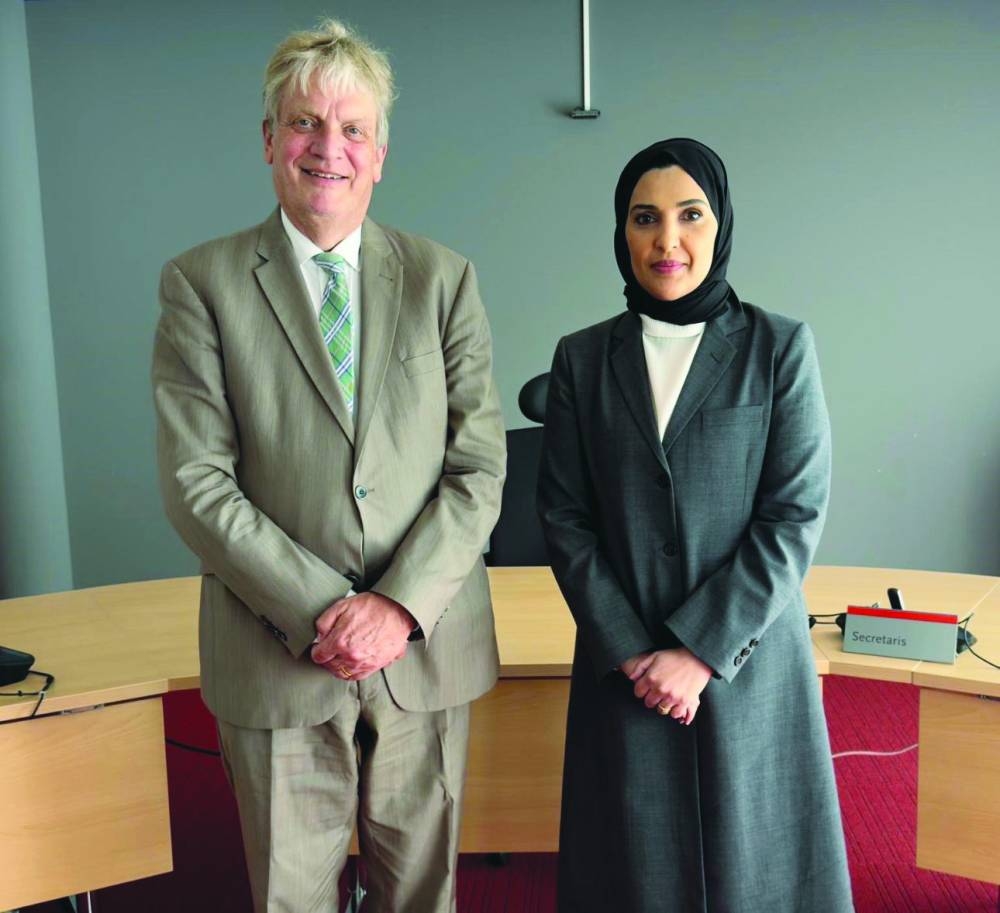The National Human Rights Committee (NHRC) held a meeting with the Netherlands Institute of Human Rights, during which they agreed to develop a shared vision for interaction at the international and regional levels. They also discussed the possibility of organising activities on topics of mutual interest and preparing joint studies on human rights issues of shared concern.
The meeting, held in Amsterdam and attended by HE the Chairperson of the National Human Rights Committee, Maryam bint Abdullah al-Attiyah, and Chairman of the Netherlands Institute of Human Rights Nico Schrijver, also resulted in an agreement to co-operate in enhancing capacities in monitoring, documenting, and preparing reports for international mechanisms. Both parties agreed to exchange expertise by participating in international conferences organised by the NHRC on related topics and to collaborate in workshops, training courses, and other events and activities organised by the two entities. They proposed signing a memorandum of understanding during the upcoming 2025 international conference of the NHRC to formalise the means of their co-operation.
During the meeting, both sides discussed exchanging expertise and building a partnership in mechanisms for receiving, studying, and addressing individual complaints, conducting field visits, and implementing relevant human rights measures and mechanisms. HE al-Attiyah provided an overview of the NHRC in Qatar and its role at the national, regional, and international levels.
They also reviewed co-operation in capacity-building, including programmes to prevent and address gender-based violence, provide support services for survivors, and train law enforcement personnel and healthcare professionals. The co-operation extends to international advocacy efforts related to women’s rights, including participation in international conferences, supporting related decisions and declarations, and promoting Qatar’s experiences and best practices.
Additionally, they discussed co-operation at all levels based on the recognition that women and children are among the most affected groups in armed conflicts, climate change, and other challenges facing human rights in various parts of the world.
The two sides also agreed to work together to review and advocate for legal reforms that enhance the protection of women’s rights, such as changes in family laws, labour laws, and policies related to gender-based violence, in addition to raising awareness and education about women’s rights and collaborating in efforts to develop international standards for women’s rights through awareness campaigns, workshops, and educational events on multiple human rights-related topics in Qatar and the Netherlands, in addition to exchanging expertise concerning measures and mechanisms related to women’s rights.

